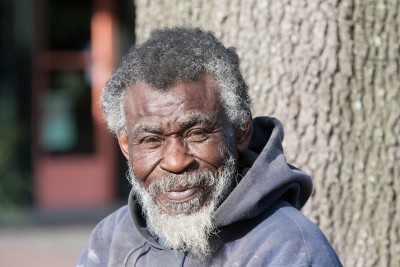Portland's property owners with vacant rentals will want to hear this..
There’s a faster way, and less costly to the taxpayer, to help find transitional housing for the thousands of people in the midst of a homeless crisis at this very moment instead of the current plans to round up people into one massive overnight shelter that is yet to be located or approved by Portland and Multnomah County leaders and agencies, Urban League of Portland Vice President Julia Delgado said this month during a press conference that launched the Challenge 3000 campaign with partners Street Roots, Human Solutions and 21 other organizations that agree with us.
“We call on you, our elected leaders and community, to push for immediate housing solutions available now,” wrote Delgado, Street Roots Editor Kaia Sand and other leaders of the coalition in a statement to the press. “Harness the urgency of this moment to make a lasting impact on homelessness in our community instead of moving people around the city and threatening criminalization, which is ineffective, expensive and inhumane. It increases racial disparities, intensifies trauma, and does not add a single unit of housing. Investing in housing is a true solution, and it also opens capacity in emergency shelters as folks move back into housing, freeing up space for new folks in shelter.”
Solutions must include permanent housing that promotes racial equity and works to eliminate racial disparities in homelessness, even as we work to end homelessness for everyone. These solutions are ready now. Let’s use them:
-
Access empty apartments using rent support, landlord coordination and wraparound services. Property owners can commit to making at least one of vacant units available (pledge goes live 10 a.m. Thursday). The city and county can support this with vouchers, rent buydowns and rental subsidies. Nonprofits can provide wraparound support and retention services. Community members can rally their neighbors to support these efforts.
-
Purchase properties that are ready to provide housing now. Support nonprofit and public acquisition and operation of motels/hotels, newly constructed apartments and other buildings that are ready to convert to a “ready-now” model of affordable housing. Deploy best practices from Oregon’s Project Turnkey model and the Terner Center Study.
-
Ensure that our new and existing affordable housing is accessible to people experiencing homelessness. Ensure that screening criteria does not exacerbate racial disparities. Affordable housing, financed by local bond measures, tax credits and other financing tools, should more deeply prioritize people experiencing homelessness. We can fund rent buydowns and offer deeper service and financial support. This way we ensure we are building permanent homes tailored to the needs of people who need them most.
All options must not be connected to bans or sweeps. These strategies are strengthened by eviction protection, mutual aid efforts, and support for people quickly transitioning from shelters to housing. True solutions are possible if we all work together.
The best way to end homelessness is by rapidly increasing access to housing, one household at a time. Our community is working rapidly to expand Permanent Supportive Housing, an evidence-based intervention to end chronic homelessness.
Those who own residential property can help today. Any housing can be Permanent Supportive Housing when a rent voucher is applied, and services are attached.
Pledge now to commit to dedicating vacant units of housing to be matched with services and ongoing rent payment for your tenant so that someone living on our streets right now gets a second chance and safety, stability, and home.

